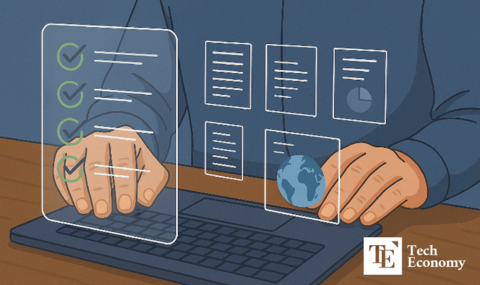Elon Musk’s DOGE and the IRS Hackathon Privacy and Policy Firestorm
Input
Changed
Musk’s Mission to Modernize a Bureaucratic Dinosaur Efficiency Meets Ethics: The Case for and Against a ‘Mega API’ Innovation or Overreach? Public and Political Blowback Intensifies

Musk’s Mission to Modernize a Bureaucratic Dinosaur
In an unexpected turn of events, Elon Musk’s cryptocurrency venture DOGE has announced plans to host a hackathon at the U.S. Internal Revenue Service (IRS). The stated goal of this hackathon is to make it easier for the IRS to access taxpayer data, sparking a wave of concern and curiosity about the potential privacy implications. Musk’s push for such a major overhaul of the IRS’s data system seems to stem from his well-documented belief in the inefficiencies of government bureaucracy and his desire to implement technology-driven solutions to resolve them. However, the idea of a private company, especially one linked to a controversial figure like Musk, gaining such significant access to sensitive taxpayer information raises troubling questions about privacy, control, and the broader impact on citizens.
Elon Musk is known for his ambitious ideas and ability to shake up industries, whether it’s with electric cars, private space travel, or now, cryptocurrency. His push for a hackathon at the IRS is in line with his penchant for using innovative technology to solve complex problems. Musk, whose companies rely on cutting-edge technologies to streamline operations and achieve efficiency, has frequently criticized government systems for being outdated and inefficient. The IRS, often cited as one of the most cumbersome and bureaucratic government agencies, is no exception in Musk’s eyes.
Musk’s critique of the IRS stems from his belief that the agency’s current infrastructure is outdated and inefficient. His plan for a hackathon—essentially a public event where developers, engineers, and tech experts work to create innovative solutions to a problem—would focus on designing a more efficient way for the IRS to handle taxpayer data. Specifically, Musk’s team wants to create what is being called a “mega API,” a comprehensive tool that could streamline access to IRS data and improve the efficiency of tax processing.
In Musk’s mind, the IRS’s lack of technological sophistication is a major roadblock to its ability to efficiently collect taxes and serve American taxpayers. By introducing more sophisticated digital tools and streamlined access, Musk believes the IRS could significantly reduce its backlog, simplify its processes, and make the tax filing experience easier for average Americans. In his vision, a more efficient IRS could also help prevent taxpayers from making inadvertent mistakes on their returns, which often result in hefty fines years down the line.

Efficiency Meets Ethics: The Case for and Against a ‘Mega API’
While Musk’s intentions may seem to revolve around improving the IRS’s operations and providing more transparency for the public, the proposed hackathon and its associated plans also raise serious concerns about privacy and data security. The idea of granting more accessible and possibly unrestricted access to taxpayer data through a “mega API” understandably makes many citizens uneasy.
Taxpayer data is among the most sensitive information any government agency handles, and the prospect of allowing private companies—even one as well-resourced and high-profile as Musk’s DOGE—direct access to this data is unsettling. As the public’s awareness of data privacy risks grows, so too does the concern that the system could be abused or mishandled. In Musk’s case, where his companies have frequently been criticized for the management of user data, the idea of using private sector ingenuity to manage such sensitive information is a troubling one.
Additionally, a significant point of contention is the level of control Musk’s team would have over the system. If DOGE’s hackathon results in a new, more streamlined API, it’s not hard to imagine how such a system might grant private companies—perhaps even Musk’s own—direct access to critical taxpayer information. As much as Musk may tout the potential efficiency benefits, this opens the door to unforeseen risks that could compromise the privacy of millions of individuals.
Despite the concerns, there is an argument to be made that Musk’s hackathon could offer tangible benefits to ordinary taxpayers. One of the more practical advantages is the potential for a streamlined tax process, where taxpayers could be spared from receiving excessive fines years after filing their taxes. In an ideal scenario, a more efficient system would enable individuals to fix small errors quickly, reducing the likelihood of tax penalties and offering peace of mind to those worried about the IRS tracking down old discrepancies.
Currently, many taxpayers face the issue of delayed responses or confusing processes when interacting with the IRS. The introduction of a mega API and other technological improvements could ease these frustrations by allowing people to access their tax information more easily and correct any mistakes before they escalate into major issues. A system that provides real-time updates, automated corrections, and clear communication could help prevent small mistakes from snowballing into large, often expensive, tax problems.
For individuals with complicated tax situations—such as freelancers, business owners, or those with multiple income sources—the benefit of an easily accessible and more responsive IRS system would be clear. Musk’s efforts may thus promise to alleviate some of the stress associated with tax filing, making the process smoother for the average American taxpayer.

Innovation or Overreach? Public and Political Blowback Intensifies
Despite these potential benefits, public reception of Musk’s plans has been overwhelmingly skeptical, particularly when it comes to privacy. Many have expressed their unease at the idea of allowing a private, for-profit company to be involved in the process of accessing, managing, or organizing taxpayer data. The general public’s wariness of tech giants handling personal information has only grown in recent years, especially after several high-profile data breaches and controversies involving companies like Facebook, Google, and Amazon.
Moreover, Musk’s reputation as a polarizing figure further complicates matters. Although he is seen as a visionary in some circles, others view his moves with suspicion, particularly when his actions seem to put private business interests above public concerns. For example, Musk’s ventures with Tesla and SpaceX are often characterized by an aggressive pursuit of profits and innovation, sometimes at the expense of broader ethical considerations. With this context in mind, many individuals worry about the future of their personal data if Musk’s plan moves forward.
Social media forums, including Reddit and other online platforms, have been flooded with discussions about the potential dangers of a private sector hackathon at the IRS. Many users express concerns that granting Musk’s DOGE team access to taxpayer data could lead to corporate exploitation, increased surveillance, or even the sale of personal data to third parties. These fears are not unfounded, as we have seen numerous instances where private entities mishandle sensitive data, whether intentionally or through negligence.
Government Resistance to Musk’s Plan
While Musk’s vision of a more efficient IRS might seem appealing to some, it is important to consider the likely resistance from government entities, particularly those overseeing tax policy. The IRS, as an established institution, has traditionally been highly resistant to change, especially when it comes to issues of data security and the privatization of governmental functions. The IRS’s core mission is to serve the American people by ensuring fair and accurate tax collection, and any disruption to this process—especially if it involves private companies—could be met with strong opposition from both lawmakers and the agency itself.
The idea of allowing a private company to control or even significantly influence such a crucial governmental function is a nonstarter for many. Lawmakers who champion privacy rights or those wary of corporate influence in government systems are likely to push back against Musk’s proposal. It’s not difficult to imagine a scenario in which the IRS resists the hackathon entirely, or at the very least sets up strict guidelines and oversight mechanisms to ensure that taxpayer data remains protected and under government control.
The Future of Government Data Management
Musk’s push for a hackathon at the IRS reflects a growing trend in which technology companies seek to play a more active role in public sector functions, particularly when it comes to data management. While technological improvements could undoubtedly make government processes more efficient, the potential dangers of privatizing sensitive government functions cannot be ignored. As much as Musk may argue for the efficiency benefits of his hackathon, it is essential to consider the broader implications for privacy, control, and the ethical use of taxpayer data.
Ultimately, while Musk’s efforts to revamp the IRS system may hold the promise of a more efficient and user-friendly tax system, the reality is that such a proposal must be carefully considered, and scrutinized for potential risks. Given the strong opposition likely to come from both the government and the public, it remains to be seen whether Musk’s vision for a technological overhaul of the IRS will ever come to fruition.





















